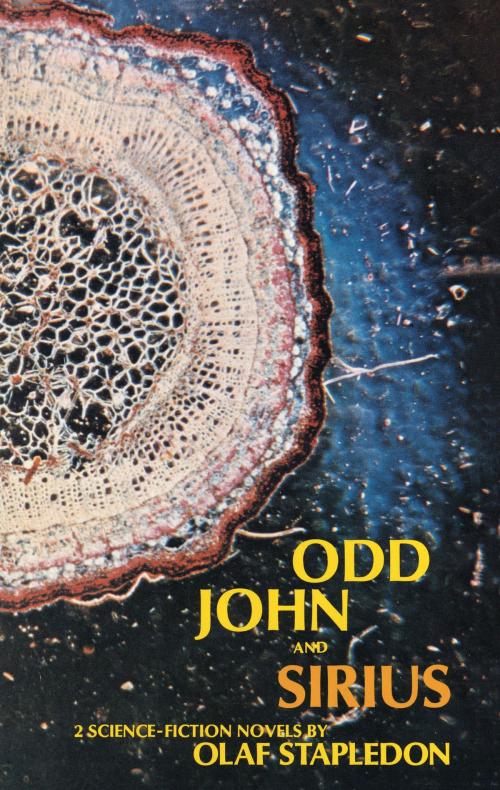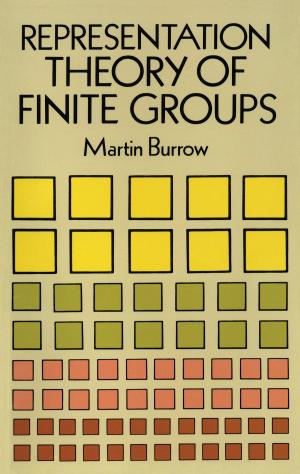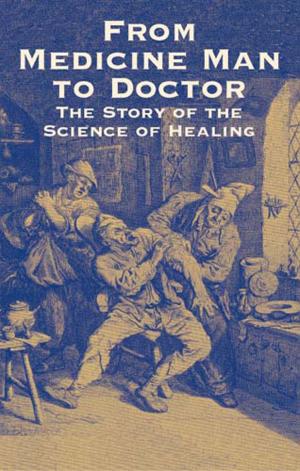| Author: | Olaf Stapledon | ISBN: | 9780486316932 |
| Publisher: | Dover Publications | Publication: | April 9, 2013 |
| Imprint: | Dover Publications | Language: | English |
| Author: | Olaf Stapledon |
| ISBN: | 9780486316932 |
| Publisher: | Dover Publications |
| Publication: | April 9, 2013 |
| Imprint: | Dover Publications |
| Language: | English |
In the list of modern science fiction personalities, the late British philosopher and novelist W. Olaf Stapledon is prominent. Last and First Men and Starmaker are generally considered to be the finest future histories ever written, the gage by which all earlier and later works are measured. Odd John and Sirius are no less accurate in dealing with the problem in another guise. The central question is: if and when a superior being is introduced into a culture, how will either survive? Stapledon’s answers are by no means romantic fantasies; they are the pathetic, realistic conclusions which we, one day, may be forced to accept.
Odd John is the definitive fictionalization of the mutated superman. After a strange birth and childhood, John is suddenly compelled to accept the fact that he is different. What is more, he has to decide what to do with his gifts. Sirius, although the logical successor to Odd John, deals with quite another being — an alien intelligence, artificially produced, a dog with superhuman mentality, who is not only superior to his own kind, but rejected by those with whom he has most in common. Stapledon uses his powers — intellectual, imaginative, and observant — to detail the conflict in its very "human" form.
Odd John and Sirius are something else besides explorations of superbeings. Stapledon is capable of a great deal of humor and tongue-in-cheek description. If his writing, as he says in the subtitle to Odd John, is between jest and earnest, his sympathies are divided between the conflicting forces of man and superman. For those in literature, in psychology, in philosophy, or even in the world as it now exists, the detailed histories of these two strange beings will be ones to ponder. If anything, we have moved closer to the stage when conflict between superior and sapient man is imminent.
In the list of modern science fiction personalities, the late British philosopher and novelist W. Olaf Stapledon is prominent. Last and First Men and Starmaker are generally considered to be the finest future histories ever written, the gage by which all earlier and later works are measured. Odd John and Sirius are no less accurate in dealing with the problem in another guise. The central question is: if and when a superior being is introduced into a culture, how will either survive? Stapledon’s answers are by no means romantic fantasies; they are the pathetic, realistic conclusions which we, one day, may be forced to accept.
Odd John is the definitive fictionalization of the mutated superman. After a strange birth and childhood, John is suddenly compelled to accept the fact that he is different. What is more, he has to decide what to do with his gifts. Sirius, although the logical successor to Odd John, deals with quite another being — an alien intelligence, artificially produced, a dog with superhuman mentality, who is not only superior to his own kind, but rejected by those with whom he has most in common. Stapledon uses his powers — intellectual, imaginative, and observant — to detail the conflict in its very "human" form.
Odd John and Sirius are something else besides explorations of superbeings. Stapledon is capable of a great deal of humor and tongue-in-cheek description. If his writing, as he says in the subtitle to Odd John, is between jest and earnest, his sympathies are divided between the conflicting forces of man and superman. For those in literature, in psychology, in philosophy, or even in the world as it now exists, the detailed histories of these two strange beings will be ones to ponder. If anything, we have moved closer to the stage when conflict between superior and sapient man is imminent.















